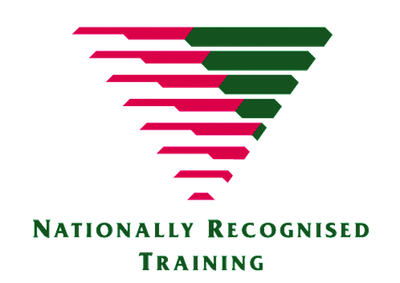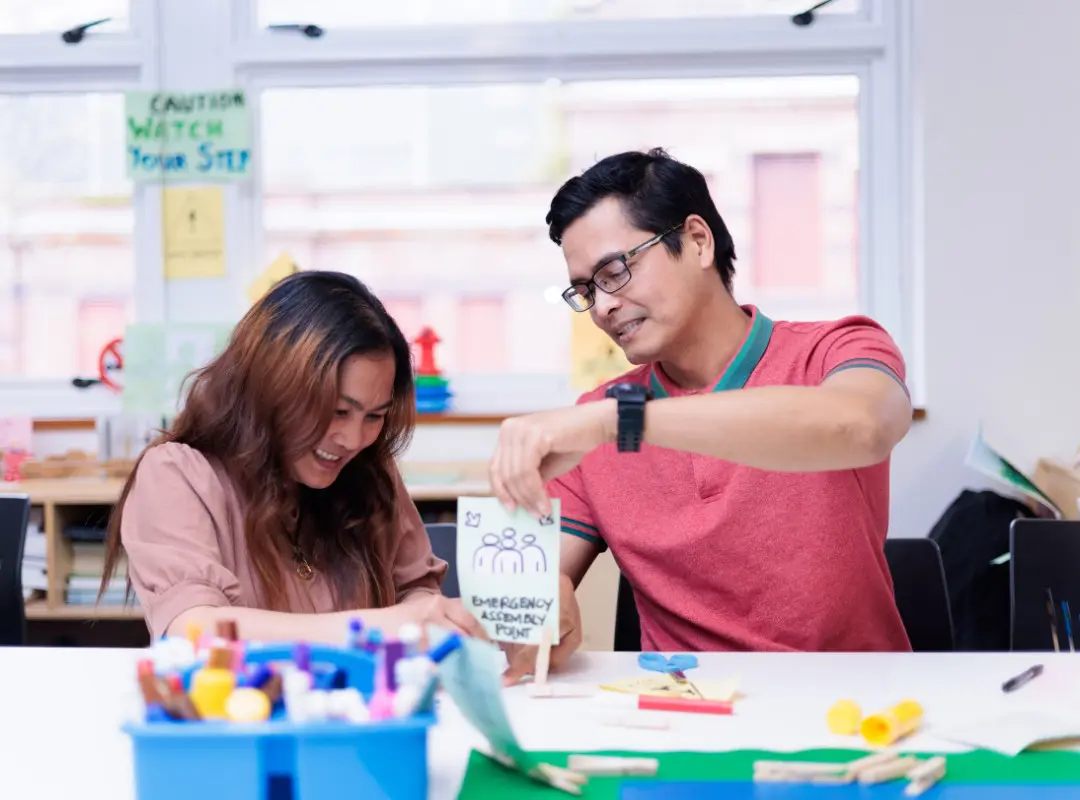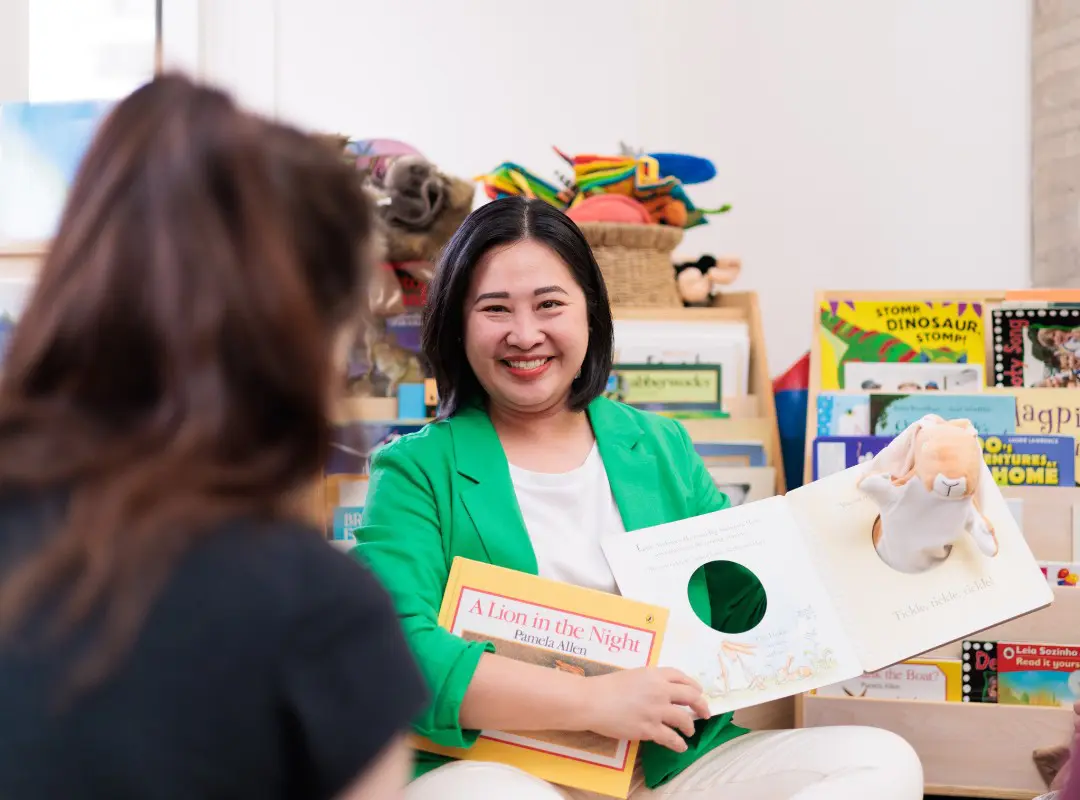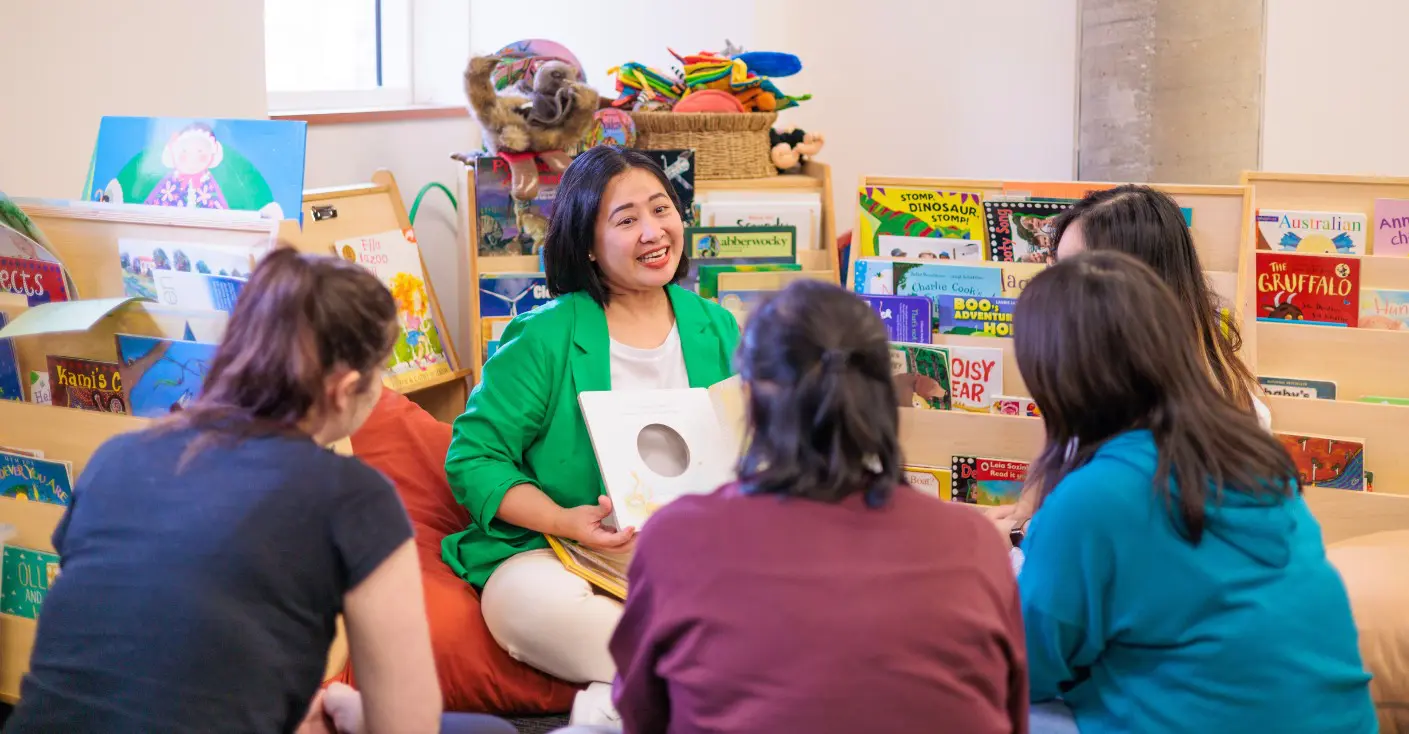Overview
If you love working with children, this course prepares you for a rewarding career as an educator in early childhood education. It is an entry-level qualification for the early childhood industry, perfect for individuals from diverse backgrounds, regardless of their previous experience and skills.
Our practical approach to learning, blending classroom teaching with a supervised work placement, ensures you graduate job ready. Throughout the course, you will learn how to support well-being and development of children aged from birth to 6 years. You will create fun experiences to support children’s play and learning, acquire first aid skills and understand workplace health and safety practices. You will also have the skills and knowledge to make sound decisions aligned with organisational policies and procedures.
As a graduate, you will have the skills and knowledge to meet the requirements of the Education and Care Services National Regulations and the National Quality Standards. These abilities will empower you to shine as a dedicated educator in early childhood education settings.
Key Information
| Award | CHC30121 Certificate III in Early Childhood Education and Care |
| Duration | 1 year (52 weeks) 4 terms x 10 weeks 12 weeks of holidays |
| Study Mode | Classroom, Structured Study (Online), & Self-directed Learning |
| Locations | Adelaide, Brisbane, Melbourne, Sydney |
| Intakes | January, April, July, October |

The CHC30121 Certificate III in Early Childhood Education and Care is a nationally recognised qualification.
Career Opportunities
Curious about what roles in the industry you can apply for upon completing your CHC30121 Certificate III in Early Childhood Education and Care? Here’s a list of career opportunities:
Long Day Care Worker
Family Day Care Worker
Occasional Care Worker
Qualified Nanny
Early Childhood Worker
Playground Supervisor
Study Pathways
Completing the CHC30121 Certificate III in Early Childhood Education and Care will open a study pathway into our CHC50121 Diploma of Early Childhood Education and Care.

Course Delivery and Assessment
This course is timetabled for 52 weeks, including 40 weeks of training and assessment across 4 terms of 10 weeks each, and 12 weeks of holidays. Each week, you are required to complete 20 hours of training and assessment, made up of 14 hours of weekly classroom training and 6 hours of structured study. The hours allocated to structured study may vary during work placement. An additional 10 hours per week for self-directed learning should be set aside for homework.
Training: Training takes place on campus and in an early childhood education setting. Delivery methods for training on campus includes trainer presentations and demonstrations, individual tasks, case studies, research, role plays, practical demonstrations, and group work.
Assessments: You will be assessed in both simulated and real work environments. In the classroom, assessments will involve projects with role-plays, case studies, observations, and short answer questions. The assessment conditions will replicate a workplace environment for classroom-based assessments.
Units of Competency
The course is made up of 17 units of competency, consisting of 15 core units and 2 elective units.
HLTWHS001 Participate in workplace health and safety
BSBSTR401 Promote innovation in team environments
HLTAID012 Provide First Aid in an education and care setting
CHCDIV001 Work with diverse people
CHCECE037 Support children to connect with the natural environment
CHCECE032 Nurture babies and toddlers
CHCECE035 Support the holistic learning and development of children
CHCECE033 Develop positive and respectful relationships with children
CHCECE056 Work effectively in children’s education and care
CHCECE034 Use an approved learning framework to guide practice
CHCECE055 Meet legal and ethical obligations in children’s education and care
CHCECE038 Observe children to inform practice
CHCECE036 Provide experiences to support children’s play and learning
CHCECE031 Support children’s health, safety and wellbeing
CHCECE030 Support inclusion and diversity
CHCPRT001 Identify and respond to children and young people at risk
CHCECE054 Encourage understanding of Aboriginal and/or Torres Strait Islander peoples’ cultures

Course Requirements and Suitability
Entry Requirements
Study Requirements
Entry Recommendations
You must meet both the academic and English language requirements.
Academic Requirements
- Completion of at least the equivalent of Australian Year 12,
- You must also complete the Language, Literacy and Numeracy (LLN) online test as per ALG’s Language, Literacy and Numeracy Requirements Factsheet.
- You must be at least 18 years of age.
English Language Requirements
You must meet one of the following criteria:
- IELTS score of 5.5 (or equivalent), with no individual band score below 5.0; or
- ALG in-house English proficiency test that is equivalent to IELTS 5.5; or
- A Certificate IV level qualification (or higher) completed within the Australian Qualifications Framework (AQF) in Australia within 2 years before starting this course; or
- Completion of the Senior Secondary Certificate of Education in Australia and in the English language within 2 years before starting this course.
Please note: If you are applying for more than one course at ALG, you will only need to complete the LLN online test once. However, students returning to studies at ALG after a significant period of time may be asked to complete the LLN online test.
For more details about the English Language Entry Requirements, please refer to the ALG English Proficiency Requirements Factsheet.
- Bring your own device: Please bring your own laptop or tablet device to theory classes as ALG does not provide these items. Refer to the BYOD Policy in the ALG Student Handbook for specific details.
- Police Check: You may be required to provide a current national police check before starting your work placement if requested by your workplace employer. You are responsible for the cost of this check, which is not included in course fees.
- Working with Children Check (WWCC): You are required to have a current and valid WWCC before your work placement begins. Information on obtaining a WWCC will be provided on Induction Day. You will need to cover any associated costs.
- Immunisations: It is recommended that you have immunisations for hepatitis B, diphtheria, tetanus, whooping cough, measles, mumps, rubella, varicella (Chickenpox) and COVID-19 vaccination.
- A strong passion for child development and care.
- Good communication skills and ability to speak, read and write in English. These skills will allow you to communicate effectively with children and their families.
- Sufficient physical capabilities as a role in the early childhood education industry involves physical tasks like lifting children, bending, and kneeling.
- Capacity to empathise and remain calm and supportive in challenging situations.

Work Placement
As a requirement of this course, you will complete a 160-hour work placement in an early childhood education setting. Work placement provides you with hands-on experience in a childcare setting preparing you for your future career as an early childhood educator. Here, you’ll put your learned skills into practice, working with children, observing their development, and contributing to a safe and nurturing environment. Through this experience you will develop positive relationships and enhance your communication skills.



